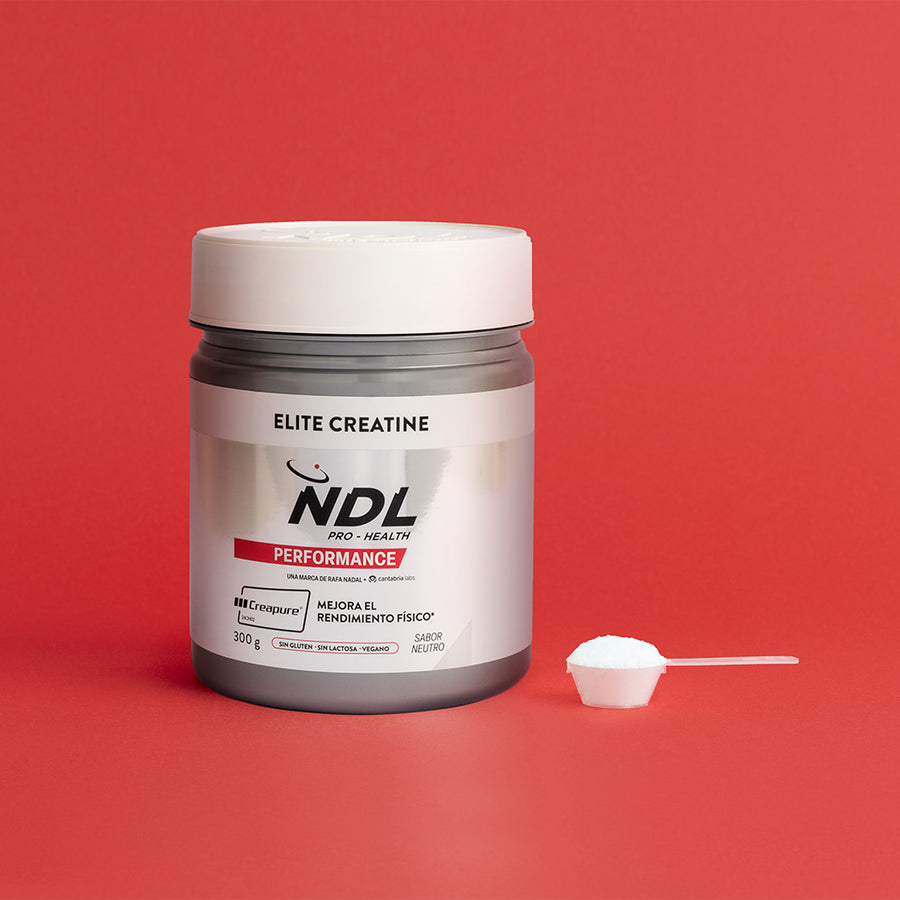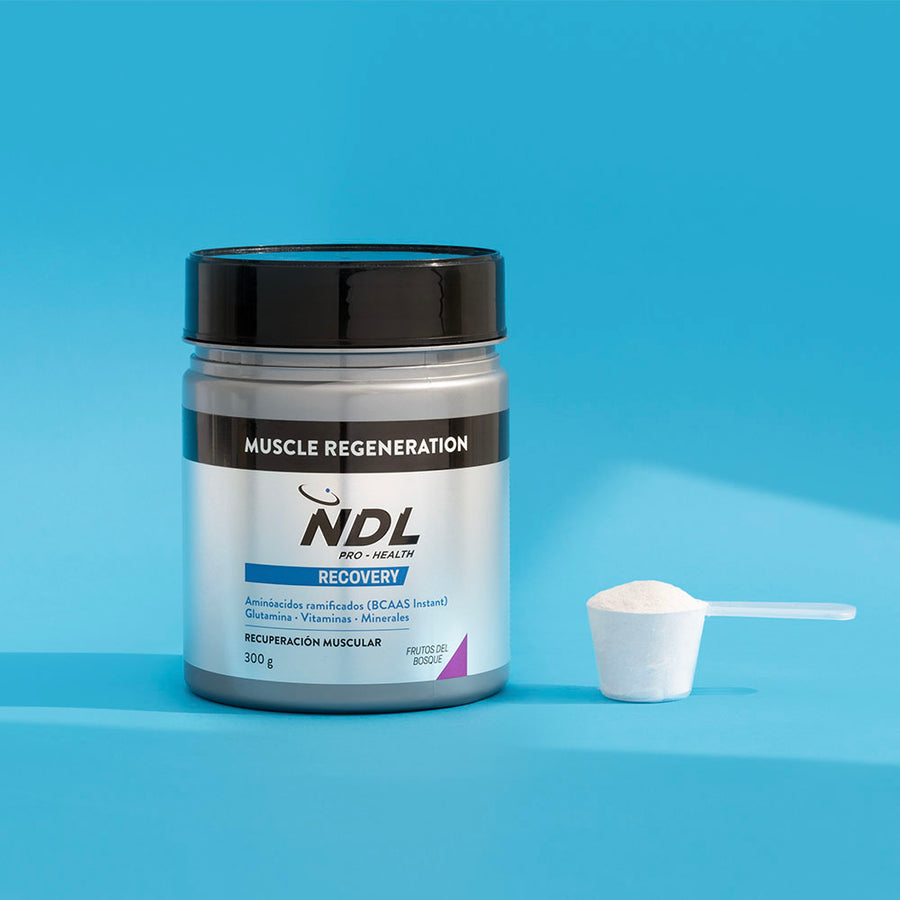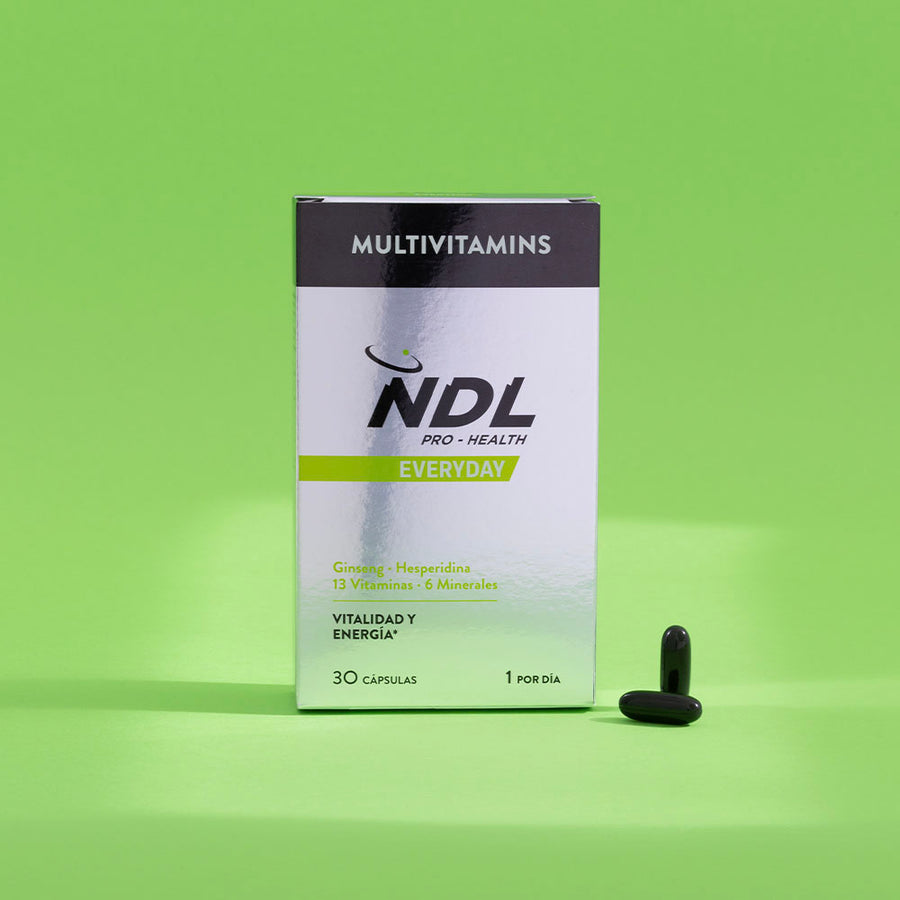Featured Products

Creapure® Creatine Monohydrate
See product
Muscle Regeneration
See product
Multivitamins and Minerals
See productA good training routine is crucial for gaining muscle mass because it provides the necessary stimulus for muscle growth (hypertrophy). By performing strength exercises properly and consistently, the muscles are subjected to microtears, which repair and strengthen during recovery.
Additionally, a well-structured routine helps to train all muscle groups in a balanced manner, avoiding imbalances or injuries, and allows for gradual progression in intensity and volume. Combined with good nutrition and rest, it is essential to maximize muscle development effectively and safely.
The Best Training Routines to Gain Muscle Mass
There are various training routines that include exercises to gain muscle mass effectively, but the best ones share key principles: progression, frequency, intensity, and adequate recovery.
Strength and Volume Routine
The strength and volume routine is a training approach designed to improve both maximum strength capacity and muscle size. It combines strength phases, which aim to increase the amount of weight you can lift, with volume phases, where the goal is to perform more reps and sets to maximize muscle growth.
This type of routine for gaining muscle mass is also ideal for people who want to improve their performance and lift heavier weights.
Training Frequency
The training frequency refers to the number of times a specific muscle group is worked per week. In terms of hypertrophy, it has been shown that training a muscle group two or more times per week is more effective for gaining muscle mass than training it only once, as it provides more frequent stimuli for growth.
Another important aspect is distributing the total volume of work, meaning it’s not just about how many days you train but how you distribute the total volume of work.
If you train a muscle group twice a week, you can divide the total number of sets between both sessions, which can improve the quality of each set and reduce the risk of fatigue.

Principle of Progressive Overload
The principle of progressive overload is one of the fundamental concepts in strength training and muscle mass gain. It refers to the need to gradually increase the stress or load applied to the muscles so they continue to grow and strengthen.
Without applying this principle, the body would adapt to the effort, ceasing to improve in strength and muscle size.
Several considerations should be followed when applying progressive overload:
- Gradual progression: it’s important that increases in weight, reps, or sets are gradual. Increasing the load too quickly can lead to injuries or overtraining.
- Rest and recovery: increasing intensity or volume without adequate rest can be counterproductive and harmful to progress.
- Variability: progressive overload is not only achieved with increases in weight. Incorporating different methods of progression helps avoid plateaus and keep the body constantly challenged.
Thus, the principle of progressive overload is essential for anyone who wants to improve their strength and increase muscle mass. Without constant progression in training, the body adapts to the effort and stops improving. By applying different methods to increase the stress on the muscles, you can ensure continuous and sustainable progress.
Rest and Recovery Times
Muscle growth doesn’t occur during training but during recovery. Therefore, it’s important to balance training frequency with enough rest days so that the muscles can repair and grow. Training a muscle too frequently without allowing time for recovery can lead to overtraining, limiting muscle mass gains or even causing injuries.
Generally, a rest of 48 to 72 hours between sessions that work the same muscle groups is recommended. This ensures that the muscles have time to recover and be ready for the next training stimulus.
Nutrition to Maximize Muscle Growth
Nutrition plays a fundamental role in the process of muscle gain, as it provides the essential nutrients the body needs to repair, build, and maintain muscle tissue.
Without adequate nutrition, training alone will not be enough to stimulate muscle growth. Foods for gaining muscle mass are necessary to provide the body with the fuel and essential materials to carry out these processes. Below, we explain several types of foods for gaining muscle mass.
Protein-Rich Foods
Protein is the most important macronutrient in muscle building, composed of amino acids, which are the building blocks of muscle fibers.
During resistance training, muscle microtears occur, and it is during recovery that proteins repair and strengthen these fibers, making muscles grow bigger and stronger.
An adequate protein intake is essential to maximize muscle growth. The general recommendation for those looking to gain muscle is to consume between 1.6 to 2.2 grams of protein per kilogram of body weight daily. High-quality protein sources such as lean meats, chicken, fish, eggs, dairy, legumes, and plant-based proteins should be part of the diet.
Carbohydrates and Healthy Fats
Carbohydrates are the body’s main source of energy and are especially important for those looking to gain muscle mass. During workouts, muscles use stored glycogen, derived from carbohydrates, as an energy source. Consuming enough carbohydrates ensures that you have the energy to perform at your best in the gym, allowing you to lift heavier weights and perform more reps.
Additionally, carbohydrates help replenish glycogen stores after training, which is crucial for muscle recovery and being ready for the next session.
Healthy fats also play a vital role in muscle gain, especially in hormone production, such as testosterone, which is crucial for muscle growth. Unsaturated fats found in foods like avocado, olive oil, nuts, salmon, and other fatty fish should be part of a balanced diet.
The Importance of a Caloric Surplus
A caloric surplus is a key concept in the muscle gain process, referring to consuming more calories than the body burns in a day. This excess energy is necessary to provide the body with the resources it needs not only to maintain basic functions but also to create new muscle tissue. Without a caloric surplus, the body lacks the “fuel” necessary to optimize muscle growth, making lean mass development difficult.
The ideal caloric surplus varies depending on the person, their activity level, body composition, and goals. A moderate surplus of 200 to 500 calories daily above maintenance needs is a common recommendation to gain muscle mass in a controlled manner.
The goal is to find a balance that generates enough caloric surplus to gain muscle without an excessive increase that leads to significant fat gain. This approach is known as a controlled bulk, where the main objective is to increase lean mass while minimizing fat gain.
Key Supplements for Muscle Growth
Using supplements to gain muscle mass can be an effective tool to complement diet and training during the process. While they are not essential for gaining muscle, certain key supplements can help optimize performance, speed up recovery, and improve muscle protein synthesis, contributing to lean mass gain.
Here are some of the most effective supplements for muscle growth:
- Protein Powder: it is one of the most popular and effective supplements for muscle growth. Proteins are the building blocks of muscles, and protein supplements provide a convenient way to meet daily requirements, especially post-workout when the body needs amino acids for recovery.
- Creatine Monohydrate: it is one of the most researched and effective supplements for muscle growth and strength gains. Creatine is stored in the muscles and used as a quick energy source during high-intensity activities like weightlifting. In the long run, creatine facilitates greater workload, leading to more stimuli for muscle growth..
- Amino Acids: play a crucial role in protein synthesis and muscle recovery. Leucine is particularly important as it acts as a key trigger in the protein synthesis process. They can help reduce muscle fatigue during intense workouts and are especially useful for those who train fasted or seek to minimize muscle loss during a cutting phase..
- Multivitamins: while not specific to muscle growth, they provide general coverage of essential vitamins and minerals necessary to maintain proper energy metabolism, bone and muscle health, as well as immune function. They ensure the body has the necessary micronutrients to function optimally, contributing to better training performance and recovery..
- Pre-Workouts: designed to enhance physical performance during training, optimizing energy, focus, and endurance. They allow for more intense and longer workouts, which generates a stronger muscle stimulus.
Sample Weekly Training and Nutrition Plan
- Weekly Training Plan:
Monday (Push): Chest, shoulders, and triceps.
- Bench press 4x8-10
- Military press 4x8
- Dips 3x10
- Lateral raises 3x12
- Tricep extensions 3x12
Tuesday (Pull): Back and biceps.
- Pull-ups 4x8
- Barbell row 4x10
- Face pulls 3x12
- Barbell curl 3x12
- Hammer curl 3x12
Wednesday (Legs): Quadriceps, hamstrings, and glutes.
- Squat 4x8-10
- Romanian deadlift 4x8
- Leg press 3x12
- Lunges 3x12
- Calf raises 4x15
Thursday: Rest or light activity.
Friday (Push): Repeat Monday's routine.
Saturday (Pull): Repeat Tuesday's routine.
Sunday (Legs): Repeat Wednesday's routine.
Daily Nutrition Plan
- Breakfast:
- Oats with 1 tbsp of peanut butter, 1 banana, and 30g of protein powder (whey).
- Lunch:
- Grilled chicken breast, 150g of brown rice, roasted vegetables with olive oil.
- Pre-workout snack:
- Greek yogurt with berries and 20g of nuts (almonds or walnuts).
- Dinner (post-workout):
- Salmon fillet, 200g of sweet potato, salad with avocado and olive oil.
- Night snack:
- Casein shake or cottage cheese with a handful of nuts.
This plan combines intense strength training with a diet that ensures a caloric surplus, rich in proteins for muscle synthesis, carbohydrates for energy, and healthy fats for hormonal balance.
In summary, maximizing muscle growth requires an effective combination of a well-structured training routine, adequate nutrition, and sufficient rest. The best training routines include strength and volume exercises, applying the progressive overload principle to continuously stimulate muscle growth.
Additionally, training each muscle group at an optimal frequency and allowing adequate recovery is essential to avoid overtraining.
And, of course, nutrition is also key: a controlled caloric surplus, along with adequate protein, carbohydrate, and healthy fat intake, provides the body with the necessary nutrients to repair and build muscles.
Supplements like protein powder, creatine, and amino acids can help optimize results by improving performance and recovery. Together, a balanced weekly training and nutrition plan ensures sustainable progress toward the goal of gaining muscle mass.

From the NDL Pro-Health team we will provide you with tips to maintain a healthy lifestyle. Sharing knowledge and product recommendations to offer optimal solutions for your daily routine, for your workouts and subsequent recovery, all with the goal of helping you achieve physical and mental wellness.

















